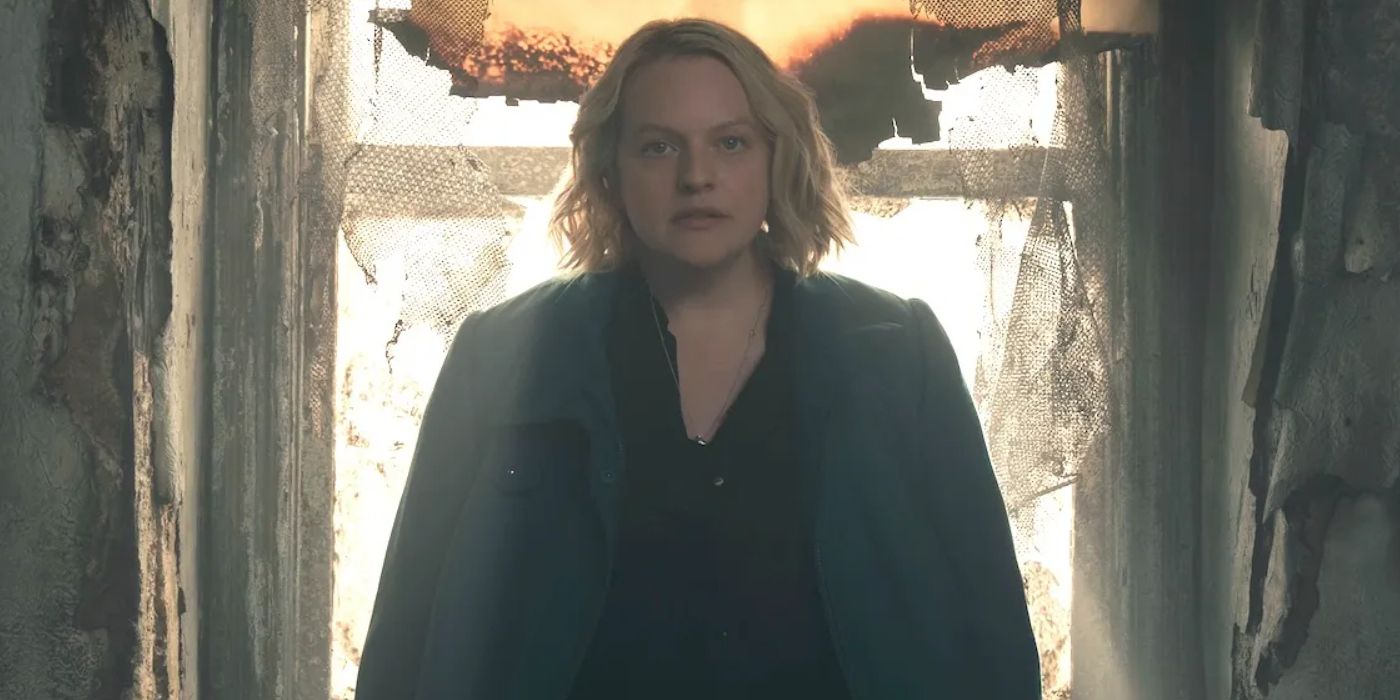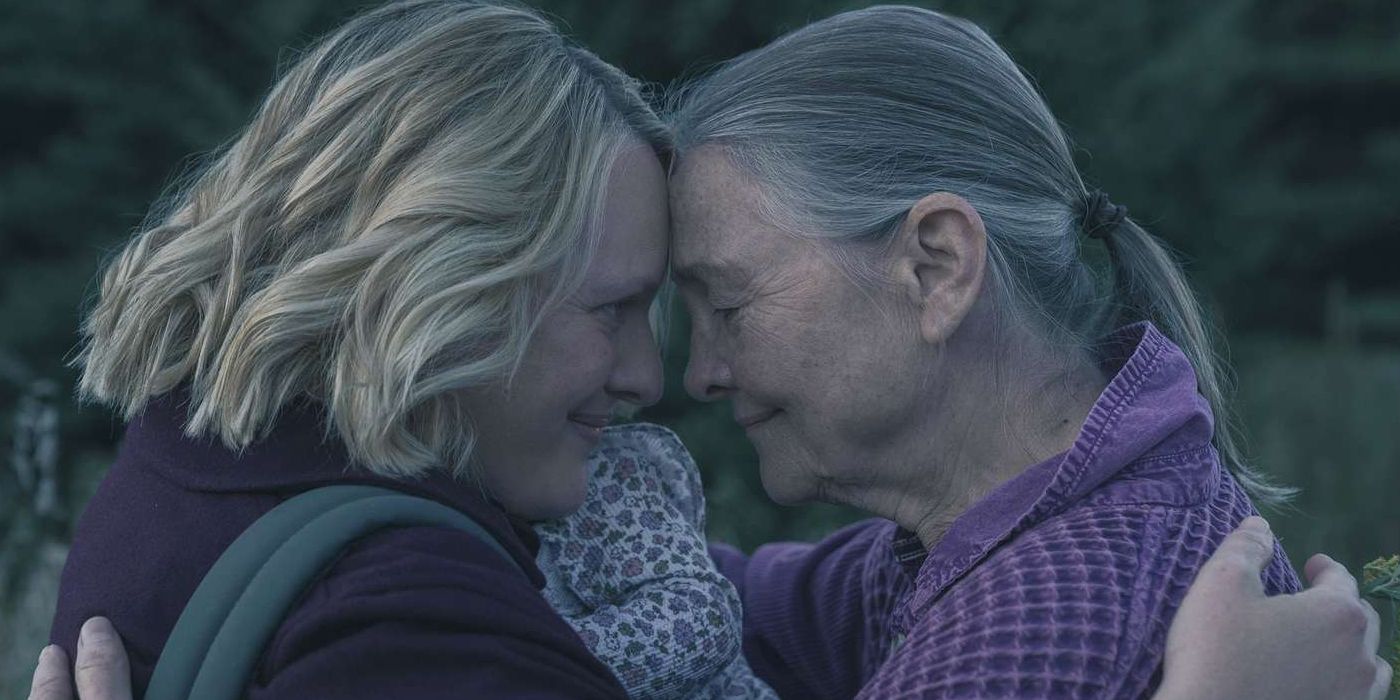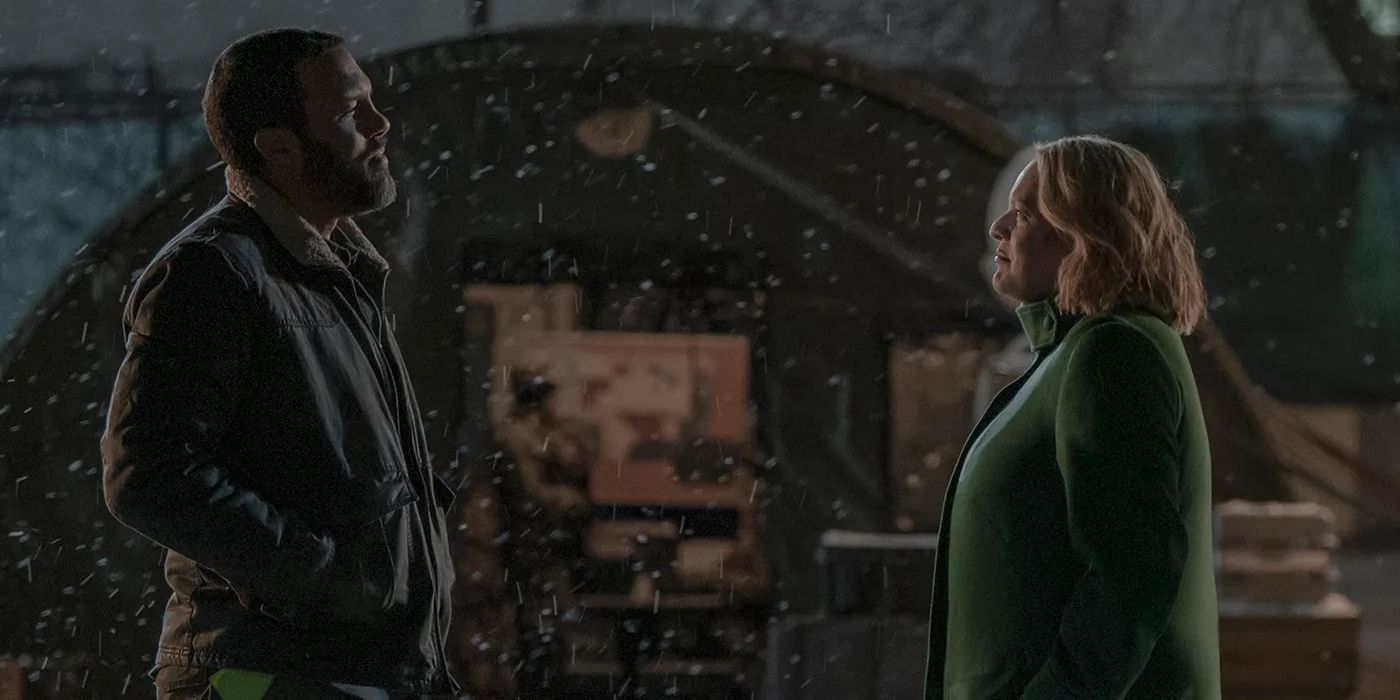 After six seasons, the Emmy-winning series The Handmaid’s Tale wrapped up with a deeply emotional and full-circle moment that changes how we view the entire story. At the center of June Osborne’s (Elisabeth Moss) journey has always been her relentless desire to reunite with her daughter, Hannah. Even when earlier opportunities to escape Gilead arose, June chose to stay behind because Hannah was still trapped there. With Hulu approving The Testaments, a sequel series based on Margaret Atwood’s 2019 novel, the original show’s ending needed to evolve. In the finale, following heartfelt talks with her husband Luke (O-T Fagbenle) and her mother Holly (Cherry Jones), June arrives at a profound realization: her story deserves to be told—not just for her daughters but for all the survivors of Gilead.
After six seasons, the Emmy-winning series The Handmaid’s Tale wrapped up with a deeply emotional and full-circle moment that changes how we view the entire story. At the center of June Osborne’s (Elisabeth Moss) journey has always been her relentless desire to reunite with her daughter, Hannah. Even when earlier opportunities to escape Gilead arose, June chose to stay behind because Hannah was still trapped there. With Hulu approving The Testaments, a sequel series based on Margaret Atwood’s 2019 novel, the original show’s ending needed to evolve. In the finale, following heartfelt talks with her husband Luke (O-T Fagbenle) and her mother Holly (Cherry Jones), June arrives at a profound realization: her story deserves to be told—not just for her daughters but for all the survivors of Gilead.


The final scenes bring June’s journey full circle. After everything that happened, she shares an emotional moment with her mother about why she must leave once again—to continue fighting for the girls of Gilead, including Hannah. Though Holly doesn’t want June to go, she acknowledges the strength her daughter has gained. This leads to a gentle suggestion: maybe June should write down everything she’s lived through. Initially, June hesitates—her story is filled with pain, loss, and trauma. Who would want to relive that? But Holly reminds her the story isn’t meant for those who haven’t lived it—it’s for those who need to know survival is possible, and for her daughters, so they understand the mother they have. Luke shares similar thoughts in their final scene together, emphasizing the importance of remembering those who helped June survive. This conversation shifts June’s perspective, leading her back to where it all began—the Waterford house.


Walking through the burnt remains, June finds her old bedroom and pulls out a tape recorder, starting to describe the room: “A chair. A table. A lamp. There’s a window with white curtains…” These words echo the very first scene from the pilot eight years ago. Revisiting that pilot reveals a faint tape recorder clicking just before June’s voiceover begins—hinting that those iconic voiceovers weren’t simply her thoughts but recordings made by a future June, a survivor telling her story.
The finale confirms that June’s narrations were not internal monologues but deliberate testimonies recorded to be heard by others someday. In a powerful visual callback, June sits in front of the same softly lit window with white curtains as Offred’s first scene. This haunting moment reframes the whole series, showing us that the quiet, subdued Offred we met was actually the voice of the fierce survivor June would become.

When June says, “My name is Offred” in the finale, Elisabeth Moss delivers it with the defiant smile that has defined the character—turning a name once meant to erase her identity into a symbol of resistance. This ties directly into the show’s theme of reclaiming power, especially highlighted in the episode before the finale, where the red cloaks—once symbols of oppression—become tools of defiance for the women who wear them. What we assumed to be private coping voiceovers are now revealed as a courageous act of storytelling, where June takes control of her own narrative in a deeply personal and revolutionary way.
Elisabeth Moss, who also directed the finale, told The Hollywood Reporter that this full-circle moment was intentional and meaningful. She watched the pilot scene multiple times before filming to ensure the final voiceover matched its cadence perfectly. For Moss, who has shaped June’s story for nearly a decade, this wasn’t just an ending—it was a culmination of her own artistic journey. While details about The Testaments remain under wraps, it’s clear June’s decision to share her story will resonate through the new series and beyond.
All seasons of The Handmaid’s Tale are available to stream on Hulu.
